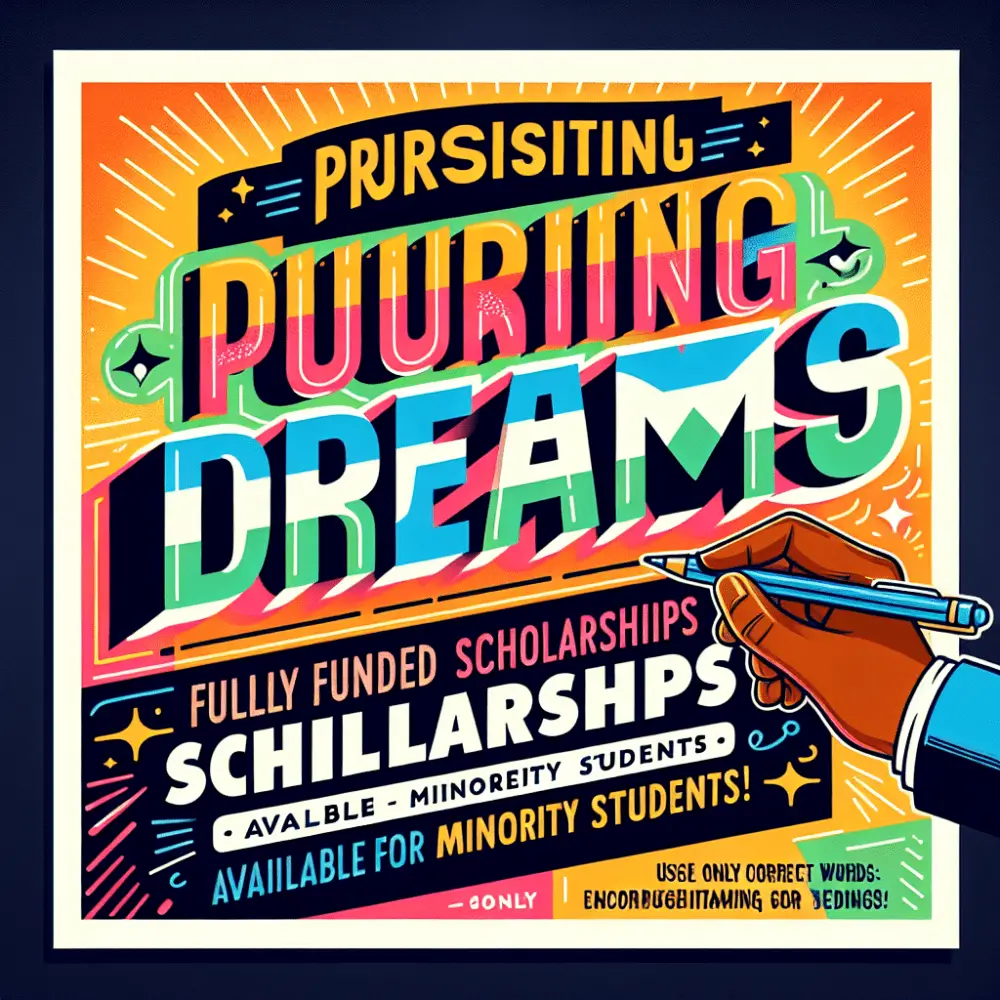
Introduction:
Obtaining a quality education is a crucial step toward achieving success in today’s competitive world. However, the rising cost of education can act as a major obstacle for many individuals. Fortunately, fully funded scholarships offer a gateway to success by providing financial assistance to deserving students. These scholarships cover not only tuition fees but also various living expenses, making education accessible to those who might otherwise be unable to afford it.
In this article, we will explore fully funded scholarships in depth, delving into their benefits, eligibility criteria, application process, and frequently asked questions (FAQs). Whether you are an ambitious student seeking educational opportunities or a parent looking to support your child’s dreams, this comprehensive guide will provide you with the necessary information you need to navigate the world of fully funded scholarships.
Benefits of Fully Funded Scholarships
Fully funded scholarships offer numerous benefits that make them highly sought-after opportunities for students. Here are some key advantages:
- Financial Assistance: The most obvious benefit of fully funded scholarships is the financial support it provides to cover tuition fees and living expenses. This eases the burden on students and allows them to focus on their studies without worrying about financial constraints.
- Exposure to Global Institutions: Many fully funded scholarships provide students with the opportunity to study at renowned international institutions. This exposure not only enhances their educational experience but also expands their network and opens doors for future career prospects.
- Cultural Immersion: Scholarships that offer international study opportunities allow students to immerse themselves in diverse cultures and gain valuable intercultural skills. This exposure fosters tolerance, empathy, and a global perspective.
- Personal Growth: Studying abroad through fully funded scholarships presents students with opportunities for personal growth and development. They learn to navigate new environments, overcome challenges, and become more independent individuals.
- Competitive Advantage: Being a recipient of a fully funded scholarship demonstrates exceptional academic prowess and dedication. This can significantly enhance a student’s resume and make them stand out in the highly competitive job market.
Eligibility Criteria for Fully Funded Scholarships
While fully funded scholarships are highly beneficial, they are often competitive and have specific eligibility criteria. Here are some common factors that institutions consider when selecting scholarship recipients:
- Academic Excellence: Most fully funded scholarships require applicants to have outstanding academic records, typically demonstrated through high grades or standardized test scores.
- Leadership Potential: Institutions also value candidates who have exhibited leadership qualities, such as involvement in extracurricular activities or community service.
- Research Experience: Some scholarships specifically cater to students interested in research. In such cases, prior research experience or published papers may be essential for consideration.
- Financial Need: While many fully funded scholarships aim to support students regardless of their financial backgrounds, some programs give preference to candidates with demonstrated financial need.
- Nationality or Ethnicity: Certain scholarships may prioritize applicants from specific countries or ethnic backgrounds as part of their diversity initiatives.
The Application Process for Fully Funded Scholarships
The application process for fully funded scholarships varies depending on the institution or organization offering the award. However, here are some general steps that most applicants can expect:
- Research Available Scholarships: Start by researching fully funded scholarship opportunities that align with your education goals. This can be done through online databases, university websites, or by consulting with academic advisors.
- Gather Required Documents: Each scholarship will have its own set of required documents. Common documents include academic transcripts, recommendation letters, a personal statement or essay, and proof of language proficiency if studying in a non-native language.
- Prepare a Strong Application: Pay careful attention to the application guidelines and ensure your application is complete and error-free. Craft a compelling personal statement that highlights your achievements, goals, and why you are an ideal candidate for the scholarship.
- Submit Applications on Time: Deadlines for fully funded scholarships are generally strict. Make sure to submit your applications well before the deadline to avoid disqualification.
- Prepare for Interviews (if applicable): Some scholarships may require candidates to participate in interviews as part of the selection process. Research potential interview questions and practice your answers beforehand to demonstrate confidence and preparedness.
Frequently Asked Questions (FAQs) about Fully Funded Scholarships
Q: Are fully funded scholarships available for undergraduate students?
A: Yes, there are fully funded scholarships available for undergraduate students. These scholarships can cover tuition fees and living expenses throughout the duration of their studies.
Q: Can I apply for multiple fully funded scholarships?
A: Yes, you can apply for multiple fully funded scholarships as long as you meet the eligibility criteria for each program. However, it’s important to carefully review the terms and conditions of each scholarship to ensure there are no conflicts or limitations regarding simultaneous applications.
Q: Are fully funded scholarships only available for specific fields of study?
A: No, there are fully funded scholarships available across various fields of study, including but not limited to science, technology, engineering, arts, and humanities. It’s essential to research scholarship opportunities that align with your chosen field.
Q: Do fully funded scholarships cover all expenses?
A: Fully funded scholarships typically cover tuition fees, living expenses, and sometimes even travel costs. However, the exact coverage varies depending on the scholarship program. Make sure to review the scholarship details for a comprehensive understanding of what expenses are covered.
Q: Are fully funded scholarships available for international students?
A: Yes, many fully funded scholarships are specifically designed to support international students who wish to study abroad. These scholarships provide an excellent opportunity for students from different countries to pursue their educational aspirations with financial assistance.
Q: Can I apply for a fully funded scholarship if I have already started my studies?
A: It depends on the specific scholarship program. Some scholarships may have restrictions on whether they accept applications from students who have already commenced their studies. However, there are also scholarships available specifically for postgraduate or doctoral-level studies where ongoing enrollment may be acceptable.
Conclusion:
Fully funded scholarships serve as a gateway to success by enabling students to pursue their educational dreams without worrying about financial barriers. The benefits they offer extend beyond monetary assistance – from exposure to new cultures and institutions, personal growth opportunities, and a competitive advantage in the job market. By understanding the eligibility criteria and application process outlined in this article, aspiring scholars can actively seek out these life-changing opportunities and pave their way toward academic achievement and career success.


















